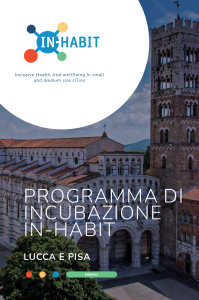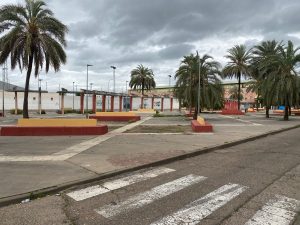
Since the 21st of October, the MOVING CITIES platform is online. The platform consists of mapping local practices of cities who defined themselves “solidarity cities” towards migrants and refugees. Moving Cities website was born in the frame of a civil society initiative called Palermo Charter Platform created around the Charter for freedom of movement promoted by the Mayor Orlando. The actual implementation of MOVING CITIES is however the result of the cooperation between Seebrücke, the German foundations Rosa Luxemburg Stiftung, Heinrich Böll Stiftung, Tesserae and local researchers in 28 European cities, with support of “From the Sea to the City consortium”.
The Moving Cities project analyses both good practices at the municipal level and the role of civil society actors in each city. The featured cities have been selected based on their progressive practices in at least one of the following categories: social rights and inclusion, reception, residence and protection against deportation, political participation, intercultural inclusion and anti-racism, collaboration with civil society initiatives, networking, and advocacy work. The cities selected are also diverse in terms of city size, geographical locations, and political environment/context.
“While the EU and national governments are doubling down on migration deterrence at any cost, with policy reforms in deadlock for years and several human rights violations, a counter movement has been emerging for years at the local level, made up of more than 700 municipalities across Europe which are supporting solidarity-based migration policies and dozens of cities are walking the talk with innovative local solutions and welcoming policies – often in disobedience with national legislations”.
There are now more and more cities becoming agents of change and taking responsibility for protecting human lives. They actively advocate for a change in the European policies from the bottom-up, for more migrants and refugees’ inclusion and political participation while creating fruitful collaborations with local organisations to share a new migration policy that can positively influence the national and European levels. A different policy towards migrants and refugees’ inclusion is not only possible, but it is already happening.
Moving Cities is conceived as a tool for municipalities and civil society organisations seeking inspiration and strategies to change their local migration policies. It is a “work in progress” platform: it aims at encouraging other cities to take action and join the project, build alliances with civil society organisations and provide the basis for a synergic dialogue with the national and European levels to change the European migration policy.
The Moving Cities platform increases visibility of welcoming cities at the EU level, shows where the commitment is and where inclusion takes place. It will be available in seven languages, to reach as many actors as possible to use it and implement the strategies in their contexts and municipalities.

The launch of the website has seen the participation of civil society organisations, public administrations representatives, activists, experts, and researchers, and there has been a fruitful exchange of insights on local migration policies and reception and inclusion strategies across the cities involved in the project.

For Tesserae, Laura Colini, has helped co-designing the Moving Cities project since its conception. Laura Colini and Filippo Furri ( from newly created association MiMetis) have been involved in writing the city reports of Bologna, Grenoble, Marseille, Milan, Montreuil, and Naples.


